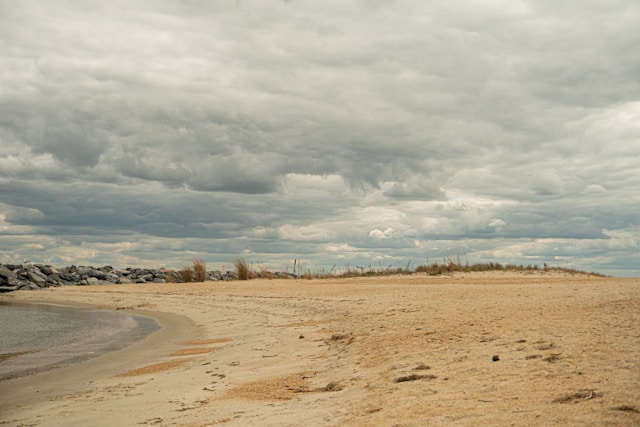Hampton, Virginia, with its rich history and picturesque coastal views, has become an attractive destination for tourists and short-term rental investors alike. As the popularity of Airbnb continues to rise, understanding the regulatory environment in Hampton is crucial for hosts to operate legally and successfully.
This blog post delves into the specifics of Hampton’s short-term rental regulations, offering a comprehensive guide for current and prospective Airbnb hosts.
Understanding Short-term Rentals in Hampton, VA
Short-term rentals, commonly referred to as Airbnb, have seen significant growth in Hampton. These rentals provide an alternative to traditional hotels, offering guests a unique and often more personalized experience. However, with this growth comes the need for regulations to ensure that the interests of residents, guests, and the city are balanced.
Definition and Categories
In Hampton, short-term rentals are typically defined as the rental of a residential dwelling unit for fewer than 30 consecutive days. These can include entire homes, apartments, or individual rooms within a property. The city classifies short-term rentals into two main categories:
- Owner-Occupied Rentals: The property owner resides on the premises during the guest’s stay.
- Non-Owner-Occupied Rentals: The property owner does not reside on the premises during the guest’s stay.
Regulatory Framework for Airbnb in Hampton
To operate a short-term rental in Hampton, hosts must adhere to several regulations designed to maintain neighborhood integrity, ensure safety, and collect appropriate taxes. Here are the key regulatory requirements:
Licensing and Registration
All short-term rental operators in Hampton must obtain a business license. The process involves:
- Application Submission: Hosts must submit an application to the Hampton Commissioner of the Revenue’s office, providing details about the property and the nature of the rental.
- Zoning Compliance: The property must comply with the city’s zoning ordinances. Short-term rentals are typically allowed in residential zones, but specific requirements and restrictions may apply depending on the location and type of property.
- Safety Inspections: The property must pass a safety inspection to ensure it meets all health and safety standards. This includes having functional smoke detectors, fire extinguishers, and adequate egress routes.
Top 100 Airbnb Rental Markets

Instantly compare the top 100 short-term (Airbnb) rental markets in the US
Occupancy Limits and Parking Requirements
Hampton imposes occupancy limits on short-term rentals to prevent overcrowding and ensure the safety of guests. The maximum occupancy is generally determined by the number of bedrooms and the overall size of the property.
In addition, hosts must provide adequate off-street parking for guests. The specific requirements vary depending on the property type and location but typically require one parking space per bedroom.
Taxation
Airbnb hosts in Hampton are required to collect and remit the following taxes:
- Transient Occupancy Tax: This tax is levied on the gross receipts from the rental of any room or space for lodging for a period of fewer than 30 consecutive days. The current rate is 8%.
- State Sales Tax: In addition to the local transient occupancy tax, hosts must also collect the Virginia state sales tax, which is currently 5.3%.
Most online rental platforms, including Airbnb, automatically collect and remit these taxes on behalf of the hosts. However, it is essential for hosts to verify this and ensure compliance.
Code of Conduct and Guest Relations
To maintain a positive relationship with neighbors and the community, Hampton requires short-term rental hosts to adhere to a code of conduct, which includes:
- Noise Restrictions: Hosts must inform guests about the city’s noise ordinances and ensure that guests do not create disturbances, especially during nighttime hours.
- Trash and Recycling: Proper disposal of trash and recycling is mandatory. Hosts must provide clear instructions to guests on how to handle waste.
- Emergency Contact: Hosts must provide guests with an emergency contact number that is available 24/7 in case any issues arise during their stay.
Compliance and Enforcement
The City of Hampton actively monitors short-term rental compliance. Failure to adhere to the regulations can result in fines, penalties, and even the revocation of the business license. It is crucial for hosts to stay informed about any changes in the regulations and to ensure that their rental practices remain compliant.
Resources for Hosts
For hosts seeking more information or assistance with compliance, the following resources are available:
- Hampton Commissioner of the Revenue’s Office: Hosts can visit the office for assistance with licensing, taxation, and other regulatory questions.
- City of Hampton Website: The official city website provides detailed information on short-term rental regulations, zoning ordinances, and application forms.
- Airbnb Community Center: This online forum allows hosts to connect with other Airbnb hosts, share experiences, and seek advice on compliance and best practices.
Conclusion
Navigating the regulatory landscape for short-term rentals in Hampton, VA, can be complex, but it is essential for ensuring a successful and legal operation. By understanding and adhering to the city’s regulations, Airbnb hosts can provide a safe, enjoyable experience for their guests while contributing positively to the community.


